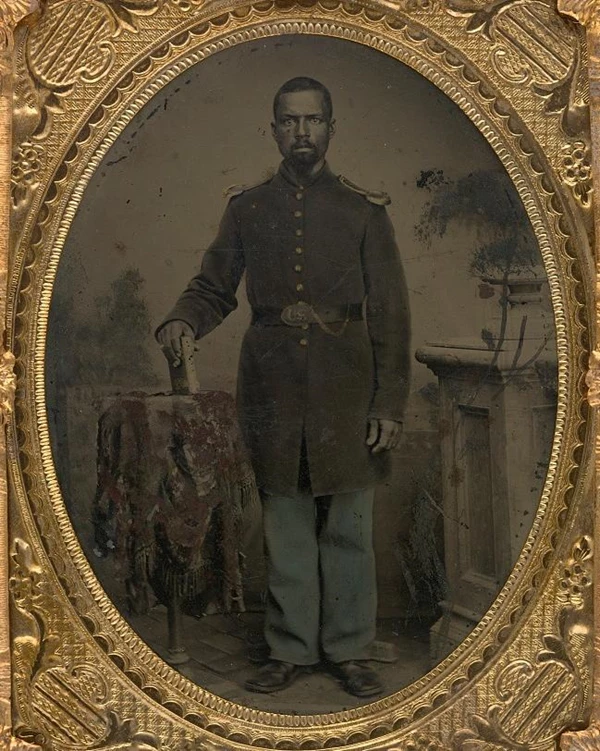Last updated: August 15, 2023
Person
William Wright

Library of Congress
He had fought too hard for his freedom and rights in the Civil War to have them taken from him.
Early Life and Civil War
William Wright was born in about 1838 in Franklin County, Kentucky. Enslaved by John Russell on a plantation outside the state capital of Frankfort, Wright gained his freedom at the age of 26 by joining the US Army during the Civil War. On June 29, 1864, Wright enlisted and was mustered in at Lexington as a private in Company H of the 114th US Colored Infantry (USCI). Unlike the majority of enslaved African Americans enlisting in the Federal military, Wright did not have to run away from his place of enslavement and join without the permission of his enslaver. Russell was a pro-Union slave owner and gave his consent for Wright to secure freedom by becoming a US soldier.Wright served with the 114th USCI at Camp Nelson and other parts of Kentucky throughout the second half of 1864 before accompanying his regiment to the frontlines in Virginia in early 1865. Wright participated in the siege operations at Petersburg and Richmond, and he marched into Richmond with the 114th USCI on April 3, 1865, as some of the first US soldiers to enter the Confederate capital after its abandonment. The Civil War ended in May 1865, but for many Black troops like Wright, their military service was far from over. The 114th USCI was transferred to Texas at the end of the conflict and performed garrison duty at Brownsville and other points on the US-Mexico border for nearly two years.
In July 1865, shortly after his regiment reached Texas, Wright was promoted to corporal, a significant achievement for Black soldiers in the nineteenth century. Garrison duty on the US-Mexico border was long and monotonous for the troops, but Wright was at least able to go on a 60-day furlough in which he was able to return home to Kentucky in late 1865. Wright rejoined the 114th USCI by the end of the year, and for unspecified reasons, he was demoted back to a private in July 1866. After serving nearly three years in the US Army, Wright was finally mustered out with the rest of his regiment at Brazos Santiago, Texas, on April 2, 1867.
Post-War Life
Once he was discharged, Wright returned home to his wife and children in Franklin County, living and working on his former owner’s farm until Russell’s death in 1869. Repeatedly harassed by bands of white supremacists, Wright and his family left Kentucky and moved to Iowa in 1871. According to one source, Wright left his home state because “he had fought too hard for his freedom and rights in the Civil War to have them taken from him.” He was one of thousands of African Americans who fled Kentucky for better opportunities in the years after the Civil War.After his wife died in 1872, Wright remarried in 1874, beginning another family. Wright remained in Iowa until his death in 1901, at the age of 63.
